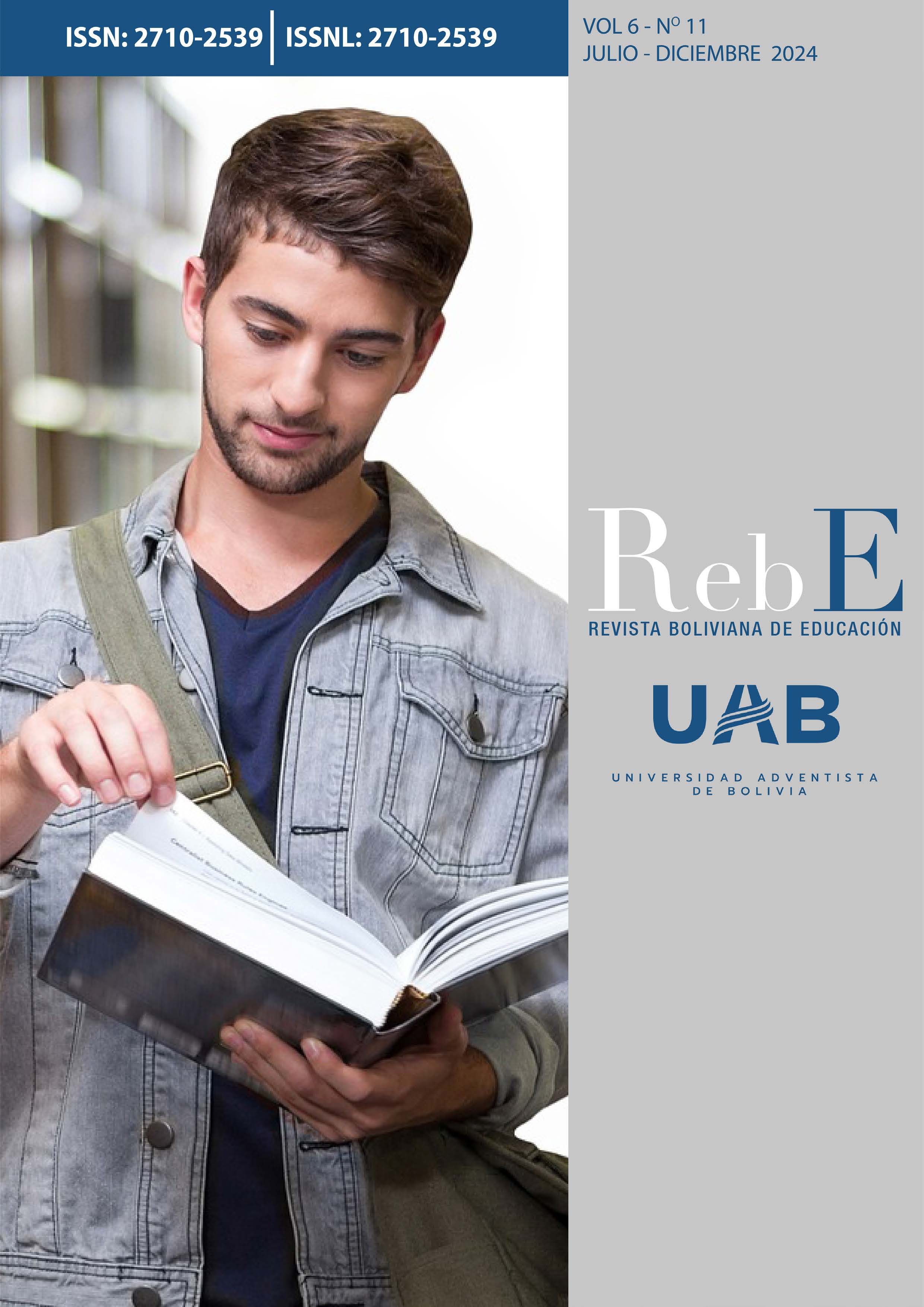Keys to effective training of virtual tutors. Educational research center
Claves para una formación efectiva de tutores virtuales. Centro de investigaciones educativasMain Article Content
The figure of the tutor has been important in virtual training, his role becomes even more crucial in times of crisis or pandemics. The purpose of the article is to provide keys for the effective training of virtual tutors from the Centro de Investigaciones Educativas de la Universidad Nacional Experimental Rafael María Baralt. He worked with a qualitative approach, a critical reflective paradigm, and applied Elliot’s model. To collect information, the technique of participant observation and the researcher’s diary are used. The instrument is an unstructured interview. For the information processing, the triangulation of sources is used. The results ensure the appropriate methodology and resources generate personalized and ideal learning for teachers. The keys to teacher training by the CIE UNERMB have a positive impact in several aspects: strengthening the autonomy and empowerment of teachers, developing the ability to face challenges and make decisions, generating confidence and consolidating the practice of the virtual tutor.
La figura del tutor ha sido importante en la formación virtual, su rol se vuelve aún más crucial en tiempos de crisis o pandemias. El artículo tiene como propósito propiciar claves para una formación efectiva de tutores virtuales desde el Centro de Investigaciones Educativas de la Universidad Nacional Experimental Rafael María Baralt. Se trabajó con enfoque cualitativo, paradigma crítico reflexivo, se aplicó el modelo de Elliot. Para la recogida de información se emplearon la técnica de la observación participante y el diario del investigador. El instrumento una entrevista no estructurada. Para el procesamiento de la información se utilizó la triangulación de fuentes. Los resultados aseguran la andragogía y recursos adecuados generan un aprendizaje personalizado e ideal para los docentes. Las claves para la formación docente por parte del CIE UNERMB tuvo un impacto positivo en varios aspectos: fortaleció la autonomía y el empoderamiento de los docentes, desarrolló la capacidad de enfrentar retos y tomar decisiones, generó confianza y consolidó la práctica del tutor virtual.
Downloads
Article Details
Calderón V. (2012). La comprensión de la educación multimodal dentro de un contexto de modelo de interacciones de aprendizaje disponible en entornos de aprendizaje personal, institucional y en redes digitales. Hermenéutica, Retórica y Educación. Memorias de la Primera Jornada. Facultad de Filosofía de la Universidad Autónoma de la Ciudad de México. https://www. biu.us/blog/articulos/sistemas-de-educacion- multimodal
Charria, V,, Sarsosa, K., Uribe A., López, C., Arena, F. (2011). Definición y clasificación teórica de las competencias académicas, profesionales y laborales. Las competencias del psicólogo en Colombia. Psicología desde el Caribe [en linea]. 2011, (28), 133-165[fecha de Consulta 30 de marzo de 2024]. ISSN: 0123-417X. Disponible en: https://www.redalyc.org/articulo.oa?id=21320758007
Conferencia Mundial sobre la Educación Superior (1998). En el SXXI. Visión y acción. https:// unesdoc.unesco.org/ark:/48223/pf0000113878_ spa
Copertari, S, y Sgreccia, N. (2011). Postgrados a distancia y virtualización en la Universidad Nacional de Rosario. Educación y humanismo, 13: 14-32, 2011. https://revistas.unisimon.edu. co/index.php/educacion/article/view/2279
Gobierno de Colombia (GOV) (2021), Competencias digitales para docentes: ¿por qué son tan importantes? Colombia aprende. 11 de agosto 2021.https://bit.ly/3TwpJ3W
Herrera, A. (2021). Qué es el eLearning. Revista Innovación y Cualificación.
Hodges, C. (2020). The COVID-19 Crisis and Faculty Members in Higher Education: From Emergency Remote Teaching to Better Teaching through Reflection. https://eric. ed.gov/?id=EJ1273059
Katayama, R. (2014). Introducción a la investigación cualitativa. Lima: UIGV. http s :// c le a. e du. mx /bi b li ote c a /f i l es / original/616f8a7df1823bd0b2a6db1bd1b621eb. Pdf
Ley de Universidades (1970). http://www.ucv.ve/ fileadmin/user_upload/comision_electoral/ Normativa_legal/index.htm
McDougall, J. (2019) “Nunca me sentí solo”: un enfoque holístico para apoyar a los estudiantes en un entorno preuniversitario en línea programa. Aprendizaje abierto: la revista de lo abierto. https://doi.org/10.1080/026805 13.2019.1583098, Distancia y aprendizaje electrónico, 34(3), 241-256 (2019). https://doi. org/10.1177/0735633115620432
McKerman (1996). Investigación-acción y curriculum. Ediciones Morata. Madrid. https:// bit.ly/3J11Xbu
Mares, L. (2021). Claves y caminos para enseñar en ambientes virtuales. Educ. ar S.E, Argentina. https://www.educ.ar/recursos/155487/claves-y- caminos-para ensenar-en-ambientes-virtuales/ download
Martínez J., Burbano, M., y Burbano. E. (2019). Obstáculos y perspectivas al emplear tecnologías de información para enseñar contabilidad Educación y humanismo, 21: 104-119, 2019 DOI: http://dx.doi.org/10.17081/eduhum.21.37.3461
Martínez, J., y Garcés, J. (2021). Competencias digitales docentes y el reto de la educación virtual derivado de la covid-19: Digital teaching competences and the challenge of virtual education arising from COVID-19. Educación y humanismo, 22(39), 1-16. unisimon.edu.co https://revistas.unisimon.edu.co/index.php/ educacion/article/view/4114/5023
Mayan, M (2001). Una Introducción a los métodoscualitativos. Universidad Autónoma Metropolitana – Iztapalapa. México. https:// www.ualberta.ca/~iiqm/pdfs/introduccion.pdf
Nyikes, Z., Digital competence and the safety awareness base on the assessments results of the middle east-european generations, Procedia Manufacturing, ISSN: 23519789, 22(1), 916-922, (2018).https://doi. org/10.1177/0735633115620432
Organización Mundial de la Salud (OMS). (2020). WHO Director-General’s opening remarks at the media briefing on COVID-19, 11 March 2020. Geneva, Switzerland. https://revistas. investigacion-upelipb.com/index.php/educare/ article/view/1377/1379
Pérez, A. y Rodríguez, M. (2016). Evaluación de las competencias digitales autopercibidas del profesorado de educación primaria en Castilla y León. https://doi.org/10.6018/rie.34.2.215121, Revista de Investigación Educativa, 34(2), 399415(2016) https://revistas.um.es/rie/article/view/215121
Sánchez, F. (2019). Fundamentos epistémicos de la investigación cualitativa y cuantitativa: Consensos y disensos.http://www. s cie lo.o rg .p e/s cie lo.p hp?s cr i pt=s ci_ arttext&pid=S2223-25162019000100008
Tømte, C. (2015). Educar a los futuros profesores en línea para dominar la competencia digital profesional: el marco TPACK se pone en línea. https://www.learntechlib.org/p/200590/ Educating online student teachers to master professional digital competence: The TPACK- framework goes online.
Torres, A. Sobre el concepto de formación. Revista Milenio. 18 de diciembre 2013. https://www.milenio.com/opinion/alfonso- torres-hernandez/apuntes-pedagogicos/ sobre-el-concepto-de-formacion https://www. innovacionycualificacion.com/plataforma- elearning/que-es-elearning/
Valencia, P. (2017). El Aprendizaje Colaborativo en Entornos Virtuales de Aprendizaje. Centro de Educación Virtual. Universidad de Externado de Colombia. https://bit.ly/3PL0nOS

